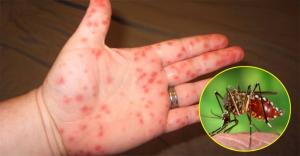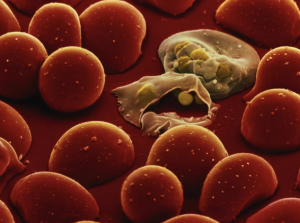Tropical diseases are returning to the United States and the bugs are bringing them.
Tropical diseases like Dengue fever, Malaria and Leishmaniasis are making a return to the United States.
PALO ALTO, CALIFORNIA, UNITED STATES, November 30, 2023 /EINPresswire.com/ -- Dengue fever, known as “breakbone fever” because of the bone-crushing pain this virus generates, is making a return to the United States as its mosquito hosts spread around the country, enabled by climate change. Dengue even has the potential to drive Ebola-like bleeding when people get reinfected with it. And dengue isn’t the only insect-borne infection increasingly plaguing Americans. Malaria, with its legendary fevers and chills, as well as the disfiguring disease leishmaniasis, are on the increase as well. Significant business disruptions from these and other climate change-driven germs are expected.2023 has been characterized by insect-borne infections returning to the US as a consequence of climate change. These include the globally-important diseases; malaria and dengue fever, to which children are particularly susceptible. Dengue and malaria both have the potential to cause widespread outbreaks of severe disease with deaths. Such outbreaks could affect employees and impact business operations.
The Aedes family of mosquitoes carry malaria, a plague of mankind for thousands of years. Aedes mosquitoes also carry dengue fever, which has surged to the highest levels of US domestic transmission in recent memory. In the last three weeks, two locally-acquired cases of dengue have been announced in greater Los Angeles, California, which caught observers by surprise, since no cases are known to have been transmitted in California ever before. This year, at least six domestically-acquired cases of malaria have been confirmed in the US, including cases in Florida, Texas, Arkansas and Maryland. There had been zero cases of malaria transmitted in the US in the prior 20 years.
So what has caused the Aedes mosquito (established along the Gulf Coast and southeastern United States since the 1980’s) to start to spread across the county? Climate change. As temperatures warm and fewer frosts allow for breeding, they are spreading north and west from their common habitats. More intense storms with high winds are also dispersing mosquitos to new areas.
Aedes mosquitoes also carry yellow fever, a virus experts warn is poised to soon return with a vengeance to the US. Hallmarks of yellow fever include intense jaundice from liver failure and life-threatening bleeding with black vomit. Absent from the US for decades, it caused devastating epidemics in the southeast during the 1800’s. There are no available antiviral treatments for yellow fever. Preventive vaccination is available in limited quantities, but carries some risk. Given the potential for rapid spread of yellow fever and large outbreaks, business impact of these could be enormous, driven by public anxiety over exposure in areas of major outbreaks. Fallout could include advice against non-essential travel, stay indoors guidance, major event cancellations, and impacted hospitals.
Diseases carried by insects other than mosquitoes are on the rise in the US as well. Leishmaniasis, which is a parasite transmitted by a sandfly bite, causes open flesh wounds, and in some cases wounds on our internal organs. It has generally been a disease of the tropics. Scientists just reported small numbers of transmissions of the skin-disfiguring form of this in the Gulf Coast states over the last 18 years. Significantly, they identified a genetically distinct form of the parasite that has become established in the US. Ongoing cases, with potential increases, in the US are expected.
PHC experts are knowledgeable about the emergence of tropical diseases in the US. PHC Global can help prepare for the stresses they will place on your organization and employees.
About PHC Global
PHC Global provides global biorisk intelligence for businesses around the world to help teams protect employee safety, business continuity and economic security. Enterprise risk officers, security teams, executives and operations teams routinely find they need centralized, trusted intelligence to respond promptly to the biological and physical risks that can erupt around the globe. PHC’s Global Threat Tracker provides intelligence that helps companies protect their employees and their assets. Visit PHC to learn more.
Lori Sutton
PHC Global
email us here
Visit us on social media:
Facebook
Twitter
LinkedIn
Instagram
Legal Disclaimer:
EIN Presswire provides this news content "as is" without warranty of any kind. We do not accept any responsibility or liability for the accuracy, content, images, videos, licenses, completeness, legality, or reliability of the information contained in this article. If you have any complaints or copyright issues related to this article, kindly contact the author above.



